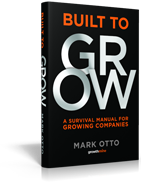
5 Ways “Smart” Leaders Fail

Every day I have the opportunity to work with extraordinarily bright leaders. More than a few of these “smart” leaders truly believe that their intelligence is far greater than those around them. Unfortunately, by the time these folks realize they are wrong; it’s already too late. Instead of using their intelligence as an asset, it becomes a liability that limits their success.
The very thing that helps some leaders get to where they are predisposes them toward a smartest-person-in-the-room approach to leading.
After all, our past successes bias us. Your past success helps to reinforce the misguided view that as the smartest person in the room, you have the best answers. So it often happens that the Achilles heel of leaders is thinking they are smarter than everyone else.
If you find yourself rationalizing the decisions you make based exclusively on your own smarts with no consideration for timing, practicality, culture, or any other contextual situations – you just might be too smart for your own good.
How do you know if your intelligence has shifted from an asset to a liability? If any of the following apply to you, then your intelligence is hindering your success:
1. You never admit you’re wrong
Sometimes the problem with smart leaders can be found in the fact that they just don’t like to be wrong. In an effort to protect your ego, do you fiercely defend your positions instead of admitting you’re wrong? Do you find yourself using your intelligence to rationalize, lecture, argue, posture, or justify your beliefs – for the sake of being right?
This irrational drive to be right is often at the expense of doing what’s right. You have to be willing and able to admit that you’re wrong to achieve the right outcomes in a business.
2. You’ve got all the answers
Have you come to believe that you can solve problems better and faster on your own? This is a dangerous trap, because it lures you into believing that you alone can answer the most difficult questions and solve the toughest problems. And so, rather than tapping into the collective intelligence of the organization, you go it alone.
The success of a business cannot rest solely on individual smarts. It’s simply not scalable. Having everything go through one leader (or even a small set of leaders) limits growth and creates a bottleneck in the organization. No one should be arrogant enough to believe they have all the answers.
3. You don’t listen
When you’re worried about being right all the time, you tend to only hear the things that validate your point of view or stroke your ego. Do you use your intelligence to intimidate others or silence dissent? You can’t be a good leader if you don’t confront the facts, especially the ones that you don’t want to hear.
You need to hear viewpoints that challenge you. A leader’s willingness to hear contradictory or conflicting information is one of the most critical differentiators between effective and ineffective teams. Leaders should surround themselves with intelligent people, that have different perspectives and experiences, and each of those people should be in a position to impact decisions.
4. Your success isn’t real
Are you really as good as you think you are? Do the people that you interact with every day see you as successful or are you only a legend in your own mind? Are you losing top talent and key customers? Do you avoid questioning, debate, and dissent? Are you perceived as being arrogant? Do you even know how people perceive you?
If the people who know you best don’t have a high regard for you, then you shouldn’t either. Respect is earned by setting aside ego to arrive at the right resolution to a problem or opportunity. If you want to be a strong leader, then you must incorporate questioning, constructive debate, collaboration, diversity of views, listening, trying new ideas, tolerance for mistakes and failures, willingness to change, and learning into your approach.
5. You’re not evolving
Are you continually learning new things and developing as a leader? Do you know your strengths and weaknesses? When you don’t know what you don’t know, you cannot add new behaviors and develop new skills and knowledge to your repertoire. The ability and willingness to learn are the most influential factors in the success of a leader. It’s simply not possible to lead a growing organization if you’re not continuing to grow and develop as a leader.
Part of becoming a great leader is engaging in serious and frequent self-assessments to evaluate where you are and where you need to be. Leaders who don’t continually grow and develop will find themselves replaced by those who do.
Is your intelligence standing in the way of your success?





